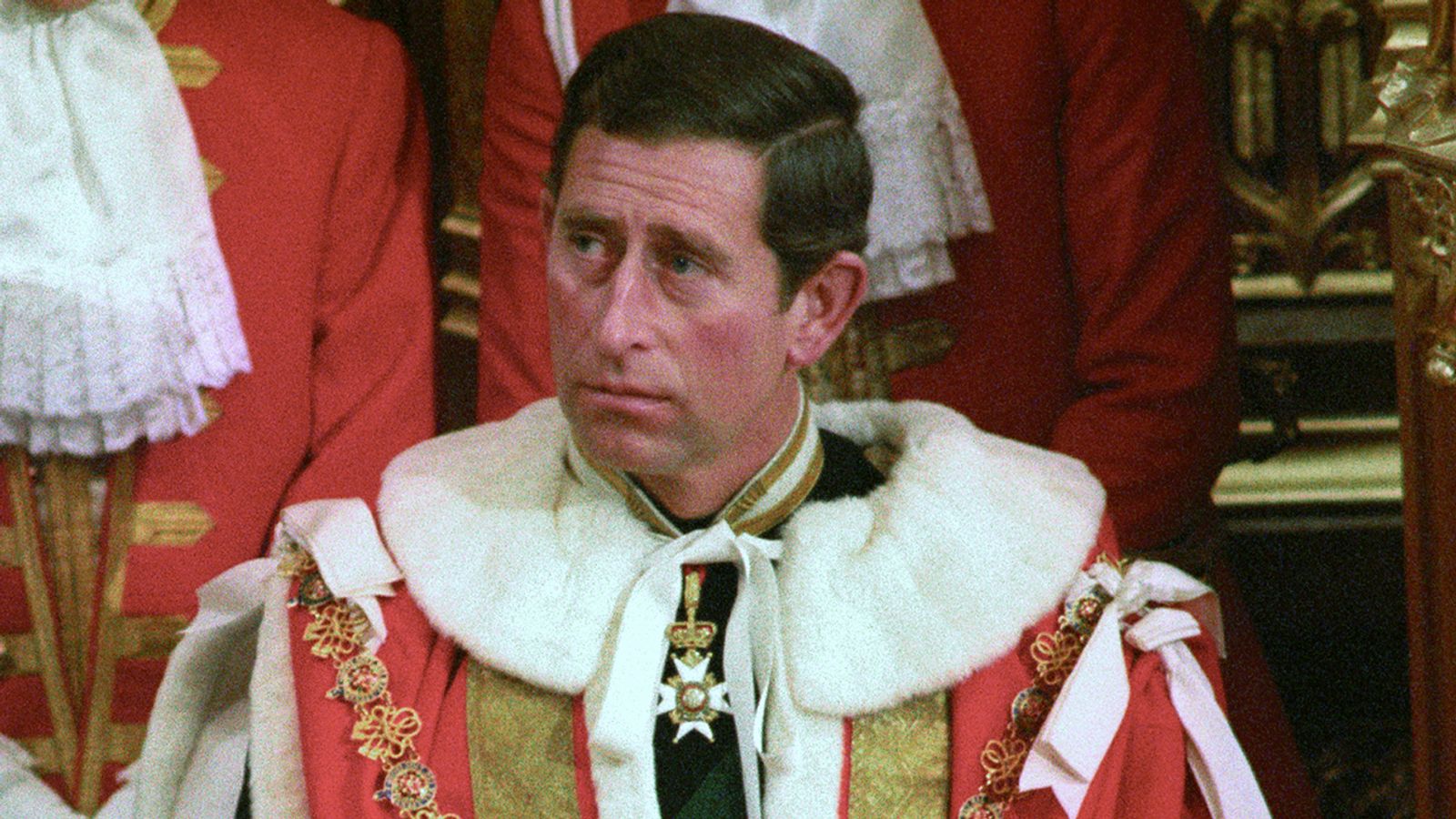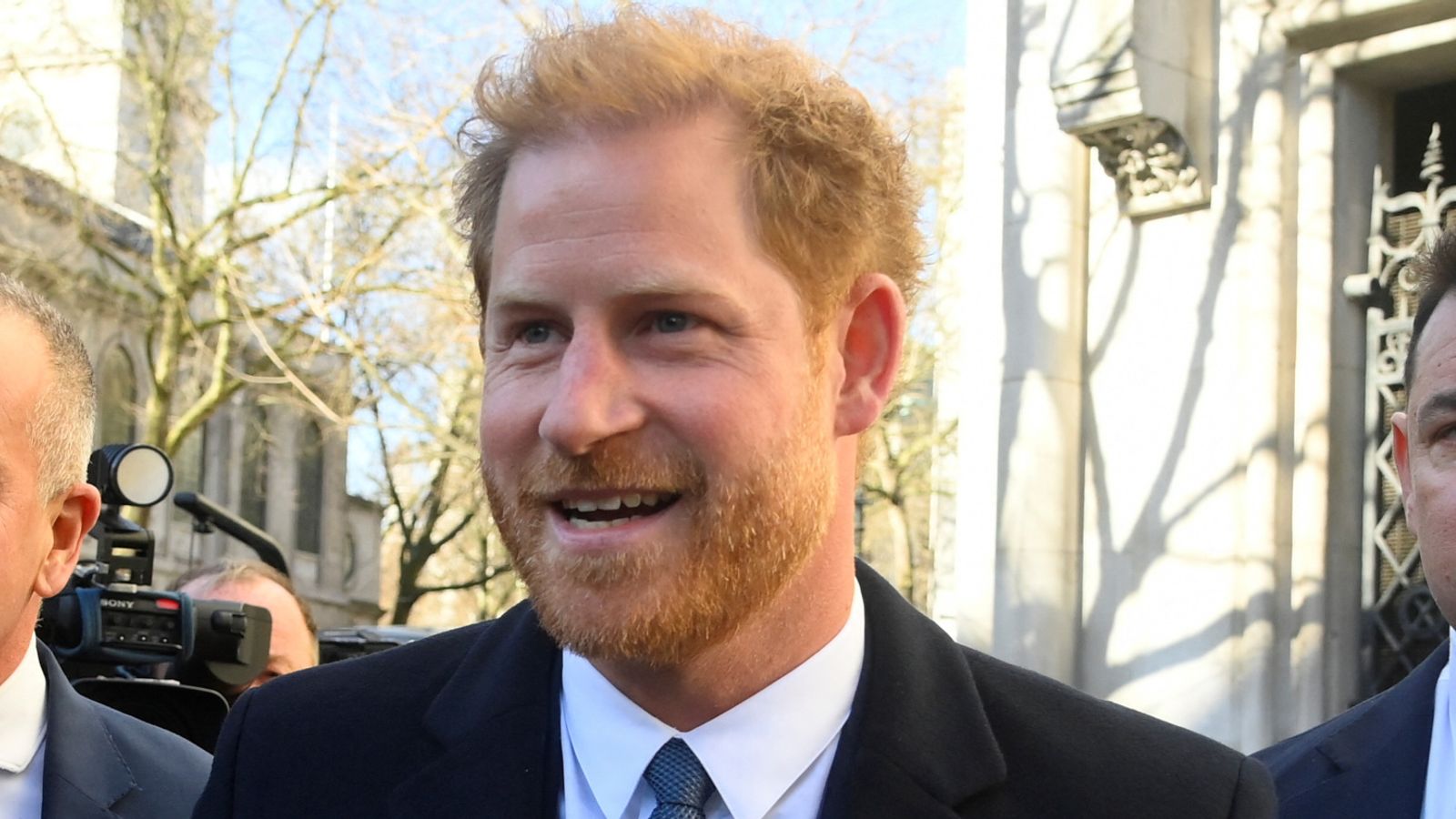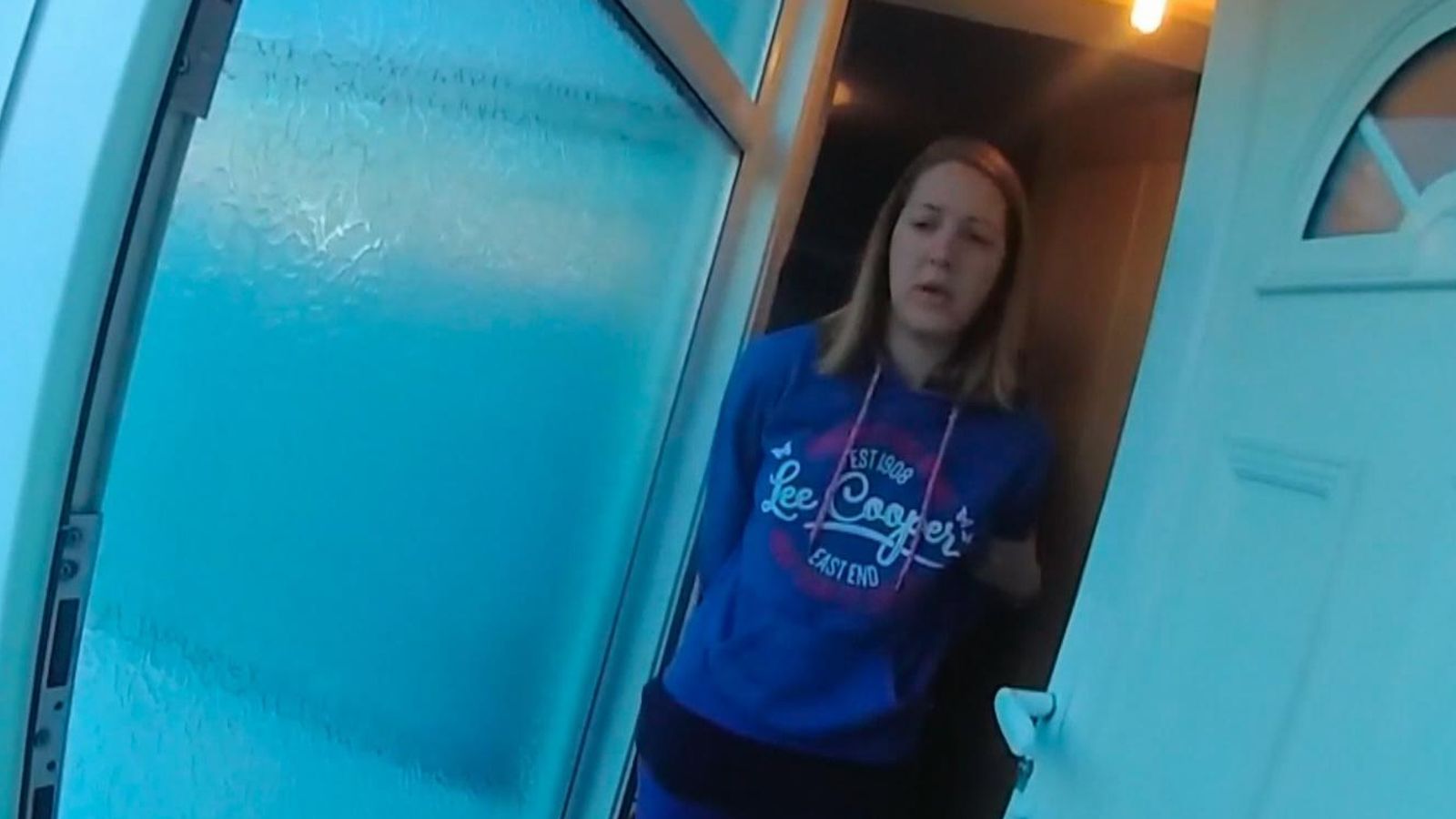The life of the Royal Family: What’s it like in the gilded cage?

It is Christmas 1951 and the royal train is puffing through dank, grey-green English countryside.
As it reaches a cutting, people run towards the track, waving and calling out.
Seconds later, the carriages sweep through a station. Dozens of onlookers scurry down the platform, trying to catch a glimpse of King George VI and Princess Elizabeth.
The camera cuts to Prince Philip – an alpha male, a military man of action. His face is a mixture of emotions, led by anxiety and completed by trepidation.
Coronation latest: King delights fans on palace walkabout as Kate poses for selfies
This box set sequence, viewed by millions of modern viewers, gives a glimpse of what it is like to be royal, of living in the “gilded cage”. People with no discernibly special skills are being hounded and idolised simply because of the family they belong to.
“All royals are victims,” says Professor Robert Hazell from University College London’s Constitution Unit. He adds that, while Harry and Meghan’s Netflix documentary series “conveys the impression that they have been uniquely victimised, the difficulties they have faced are shared by all the royal families of Europe”.
Monarchy makes “extraordinary demands” and “takes a toll” on every member of the family, he says, listing several basic rights, including privacy, freedom of speech and of career, which ordinary people have but royals lack.
The most egregious imposition, he thinks, is press intrusion, referencing “Camillagate”, when the transcript of an intimate, late night conversation between Charles and Camilla was revealed by a Sunday tabloid in 1993.
Advertisement
Royal historian Dr Ed Owens views things differently, however.
“I’m not convinced by the narrative of burdens and hardship,” he says.
“It sounds quite a lot of fun to me. When they’re not in the public eye they have considerable time – let’s call it playtime – to enjoy themselves in their homes in the countryside.”
He also points out that far from being troubled by their royal status, at least one of the Windsors – Prince Andrew – has appeared to enjoy the life it provides.
“We have to remember that the second Elizabethan age was partly anchored in an idea that to be royal is to be burdened with a sense of duty, a sense of public service – it’s a life of self-sacrifice,” he says.
“There’s nothing about Prince Andrew that speaks of self-sacrifice. He turns that model on its head in a very ugly way, and that’s why he’s such a problem.”
Nor is Dr Owens convinced by the lack of privacy. “There’s a lot of emphasis on how their lives unfold in the limelight, but that’s less than half the story,” he says.
The “gilded cage” is a “deliberate public relations narrative” the family itself has promoted, he contends.
“We need to be careful not to take it at face value because it does obscure the positive sides of this lifestyle, and there are lots.
“They mustn’t be seen to enjoy themselves, and that’s why all the positives are kept out of the public eye.”
Please use Chrome browser for a more accessible video player
0:56
‘Every stinking time’: King shouts at pen
So: what is it like to be royal? In King Charles’s case, extremely rich – enough to make rollover lottery winners wild with envy. The Sunday Times recently estimated the monarch’s net wealth at £600m – £230m more that its last calculation of the Queen’s fortune.
That could be a gross underestimation, however, because The Guardian has put Charles’s private wealth at £1.8bn, including “country piles, diamond-encrusted jewels, paintings by Monet and Dali, racehorses and rare stamps”.
Certainly no sign of a cost of living crisis.
“Materially speaking, they want for nothing,” Ed Owens says.
“They are surrounded by huge entourages of servants we don’t see very much of. When we do glimpse (the servants), it’s usually for the wrong reasons, like a king trying to move an inkwell out of the way – that sort of thing.”
They also have “large country estates at their disposal, often have family members living gratis, close to them in grace and favour accommodations”, and go to the “best private schools, followed by a job for life”.
But what is the point of a palace if people gawp at you every time you go out?
“It’s got to be a very frustrating life for many,” observes royal author Professor Pauline Maclaran, who says some members of the family may feel “confined”.
That is the feeling one gets while watching the scene on the train described earlier, from the very first episode of The Crown.
Personality must play a part, though. Princess Margaret, who liked to sing and party, was perhaps more suited to public life than the Queen, who may have been much happier living a country life tending to her horses.
Please use Chrome browser for a more accessible video player
0:52
King has his cake – and eats it
Then there is the scrutiny of the royals’ appearances. Prof Maclaran observes: “What good is having a large house and money if you feel you can’t go out the door without people remarking on anything from your walk to your look to your manner?”
Prof Hazell says he would “hate” to live at Buckingham Palace because of its “huge, echoing rooms and flunkies”.
“When you’re ‘at home’, you don’t have very much privacy,” he points out, although Dr Owens says all the servants have signed non-disclosure agreements.
What of the life of a working royal?
“Really artificial” is how Prof Hazell describes it.
“Imagine that week in, week out, you are dispatched to different parts of the country,” he says. “You have to do a lot of prep to learn the names of the people you’re going to see, you put on your best dress and your best smile, and you have to keep your best smile on throughout the visit, knowing that for these people, it will be a really special day. But, almost certainly, you’re never going to meet any of them ever again. And you do that week in, week out, day, after day, after day. I would find that really difficult.”
Meghan Markle was put off by the harsh reality of working royal life, he suspects.
“When the palace asks you to go up to Newcastle on a wet Wednesday to open a new hospital wing they expect you to go and do it.”
He also senses a “clash of expectations”.
“I think her idea of being a royal was all rather glittery – going to premieres in the West End, where they roll out the red carpet, and the more mundane side of it – which is what most royal visits consist of – I think she found quite hard to take.”
“Brands have to satisfy their customers, and the royal family is a brand,” points out Prof Maclaran.
Part of being royal – especially in a world of global, non-stop digital media – is knowing how much of yourself to display, and what to keep back.
Prof Maclaran adds: “They do tread an incredibly fine line between the idea of the mystique and the accessibility that is expected from consumers (who) demand that from their idols.
“Most of the time they are keeping up appearances (and it) must be very difficult.
“They have to put on these smiling faces and be these loving, caring people.”
Walter Bagehot, in his book The English Constitution, published in 1867, said: “Above all things our royalty is to be reverenced, and if you begin to poke about it you cannot reverence it… Its mystery is its life. We must not let in daylight upon magic.”
Read more:
‘Mind the gap’: King’s coronation message to train passengers
Will the King always live in the shadow of Diana?
But they cannot simply stay in, or behind barriers. The Queen knew the value of making public appearances. “I have to be seen to be believed,” she said, according to biographer Sally Bedell Smith.
Prince Harry’s memoir, Spare, was an exercise in “letting in daylight” – from the loss of his virginity in a field behind a pub to the number of Taliban fighters he killed in Afghanistan.
It sold extremely well, but his personal ratings have plummeted since its publication. Readers have lapped up the personal revelations, while not necessarily respecting him for divulging them.
So why didn’t he and Meghan opt out completely? Give up the titles and never speak about the Royal Family again.
Because, perhaps, there is simply no way out.
Click to subscribe to the Sky News Daily wherever you get your podcasts
Prof Hazell points out that spares are “ultimately dispensable” and it is “only those in direct line of succession who count”.
Nevertheless, the spares are “subject to the same personal restrictions as the immediate heirs”.
He goes on: “Even if he said I’m no longer going to be the Duke of Sussex, I’m giving up all the privileges, and I’m just going to be plain Mr Windsor, the press would still write about him as Prince Harry.”
The moment he was born he was royal – and that will never change.


